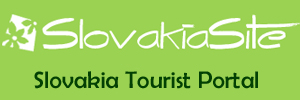North Cyprus Education
Education is one of the fastest growing sectors in North Cyprus and the educational system is divided into two spheres:
- Government based schools and colleges
- Private fee-paying schools and colleges
The Government schools and colleges
The Government schools and colleges are predominantly operating with the Turkish language, English language is taught as a second language and there is also the option of German or French language. After the entrance examination at the age of eleven, selected students are attending one of four “Marif Kolegi” secondary schools, where the language of the class is English. Expatriate children can entry without examination on condition that they have been living on the island for no more than two years. In comparison the private sector uses English or Turkish as a medium of instruction, and the third option is one of the modern foreign languages too. As for the minorities, their classes are performed in English, with the Turkish as a second language.
The Government schools and colleges are run in accordance with a curriculum appointed by the Ministry of Education and embrace children aged 5 to 17. Changes in curricula occur frequently and a significant component of education is Turkish and Cypriot history. Children graduate from educational stages: at the end of kindergarten, primary, middle school, and senior high school. These mentioned milestones are considered very seriously and are accompanied and celebrated with Government certificates, speeches and ceremony, including the parade of graduation gowns.
Assessment is accomplished by mid-term and end-of-term examination over the two terms per year of academic schooling and there are also reports issued twice a year – at the end of the winter and spring terms. The marking scheme functions on the basis of a rising scale of 1 to 10, and to proceed to the next year group students must achieve at least mark 5. If they fail to fulfill this, they are offered to re-take the exams and in the worst case they are asked to remain in the same year group for a further year.
Children can leave school aged 14 at the end of Orta 3 (Middle School), however, it is more than necessary to continue their studies until the end of Lise 3 (Senior High School) aged 17.
The private schools and colleges
The private schools and colleges operate with fees and usually charge between $1,500 and $2,500 per academic year, depending on the age of student and the establishment itself. Even they are considered “private” institutions, yet they are monitored and approved by the Ministry of Education and must follow the principals relating to basic curriculum, assessment, disciplinary issues and standards of teachers and teaching. As the private schools provide longer hours and terms, they are able to extend the curriculum and some follow the UK Key Stages, IGCSE, a limited number of AS levels, The Cambridge Young Learners Scheme, SATs and TOEFL as well. Inevitable part of the curriculum is Information Technology. All students are also expected to learn Turkish. Extra-curricular activities make a hallmark of the private school system with the emphasis on the natural gifts of children. They can find their confidence in dancing, music, sport, and other types of performance.
School uniforms are worn by every student in North Cyprus. The day in Government schools and colleges normally starts at around 8.30 a.m. and finishes at lunchtime for three days a week, and at around 3.30 p.m. to 4.00 p.m. on other days. In private schools the day usually finishes at around 3.30 p.m. to 4.30 p.m. Schools and colleges normally break for the summer holiday starting in the middle of June and lasting until early September. Private colleges often provide summer schools and organize a wide choice of activities and trips.
Students at schools and colleges are well-disciplined. They are taught from an early age to respect teachers and to consider them important part of their lives. This is highly reflected in the faces of the students when greeting their teachers with the joy and genuine affection. The very proof of this relationship can be observed on the national Teachers’ Day, when the children offer gifts and flowers to their teachers.
Student Accommodation
Compared to many countries, a lot of things are cheaper in Northern Cyprus. Accommodation being one of these, it shouldn't be a difficult task to find a reasonable-priced house / flat and/or dormitory. More information at 'Accommodation'
Universities in North Cyprus
EMU (Eastern Mediterranean University) being in Famagusta
NEU (Near East University) being located in Nicosia
CIU (Cyprus International University) being located in Nicosia
GAU (Girne American University) being located in Kyrenia
LEU (Lefke European University) being located in Lefke








